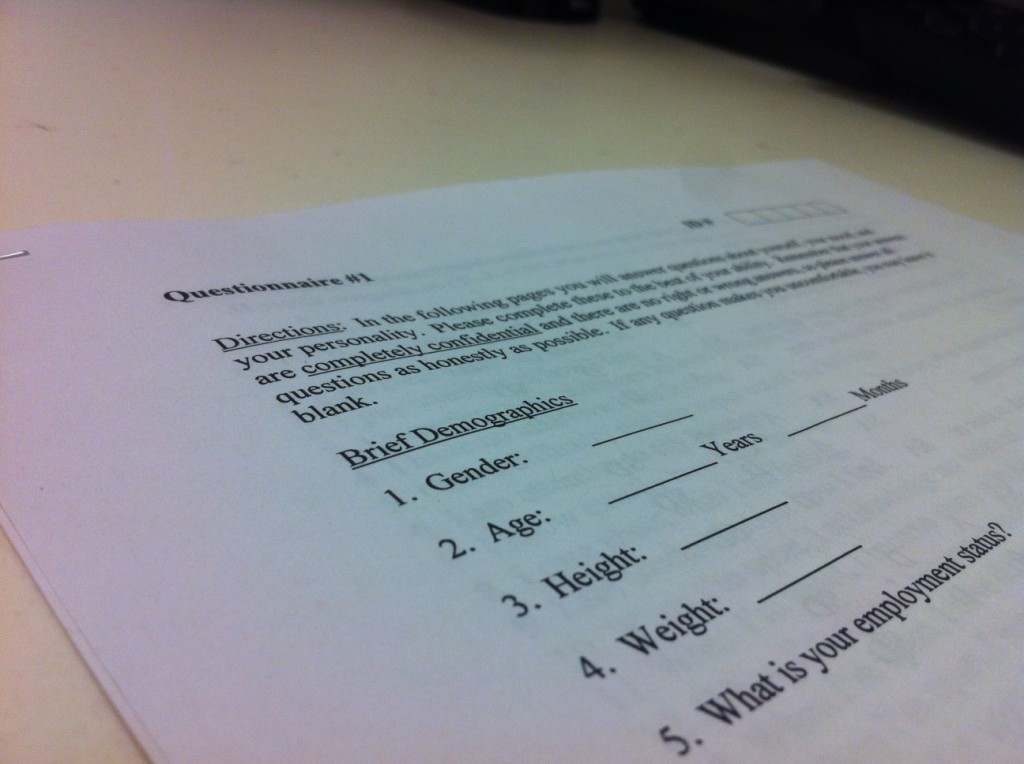Hi everyone! I’m Stephen Baum, a rising senior and psychology major. This is my first ever blog post, as well as my first summer conducting research independently, which, initially, was a slightly daunting prospect. While I was incredibly excited and humbled to have received a summer research grant, I was anxiously aware of the challenges that lied ahead. Somewhere along the line, I visualized myself drowning in a sea of journal articles that I was hopelessly inept at trying to interpret. However, thanks to the support of my advisor, Jill Nealey-Moore, (Ph.D, Psychology) I have neither downed nor am I (completely) inept at reading and analyzing articles; thus far, the research process has been fantastic and extremely rewarding, albeit challenging.
While I can’t speak entirely about the specifics regarding my research, as I am still running participants and don’t want to compromise the scientific validity of what I am testing, my research generally examines how an individual’s mood alters as a function of various tasks that they perform. Participants in my study come into the lab, complete several written exercises and questionnaires, and are then compensated for their participation. The study in its entirety takes around 35 minutes, which, figuratively speaking, is in a “sweet spot”; long enough to comprehensively examine how the tasks influence mood without leaving a participant overly fatigued and potentially compromising their ability to concentrate.
As a whole, my reflections on conducting research thus far are positive. It is very apt to characterize a considerable portion of the research process as unglamorous; for every significant finding or “eureka” moment, there are hours and hours spent in the lab, at the computer, or the library, meticulously sorting through the world of online publications, struggling with the margins on a set of questionnaires, and agonizing over the heading on a written activity. Research is inherently painstaking, and it highly prioritizes attention to detail; those that put in extra effort will be rewarded with the most fruitful, and often, most unexpected findings. Since a significant portion of the validity in experimental psychological research rests in ensuring that each participant in the study has as identical of an experience as possible, minutia cannot be ignored. In this way, routine is a researcher’s best friend, as the experimental procedure for each and every participant follows a pre-drafted “script” that standardizes language and controls for deviations. While some may find this monotonous, the process is incredibly inherently satisfying for me, as I get a certain gratuitous please out of agonizing over organizational details and running a participant directly according to the script.
Additionally, being able to work in such close proximity to Jill and pick her brain has considerably advanced my academic development. The axiom “work smarter, not harder” comes to mind – while research does require you to work (very!) hard, which Jill demonstrates, it rewards innovative, critical though and harnessed spontaneity. Observing Jill’s careful and analytical reasoning has enabled me to grasp the value of such traits in an experimental setting.
Watching my thought process systematically evolve from when my research project was in its fledgling stages has been incredibly gratifying and empowering. I believe that largely due to the help of those around me, I’ve been able to progressively develop a variety of skills that will benefit me even outside of an academic research setting, such as the ability to problem solve in difficult situations, or ration time and resources in an advantageous manner.
So that is about it! Hopefully I can keep everyone up to date with my adventures in the lab as my study progresses. I’m looking forward to being able to speak more freely about the semantics of my research and the theory behind it. Stay tuned!

